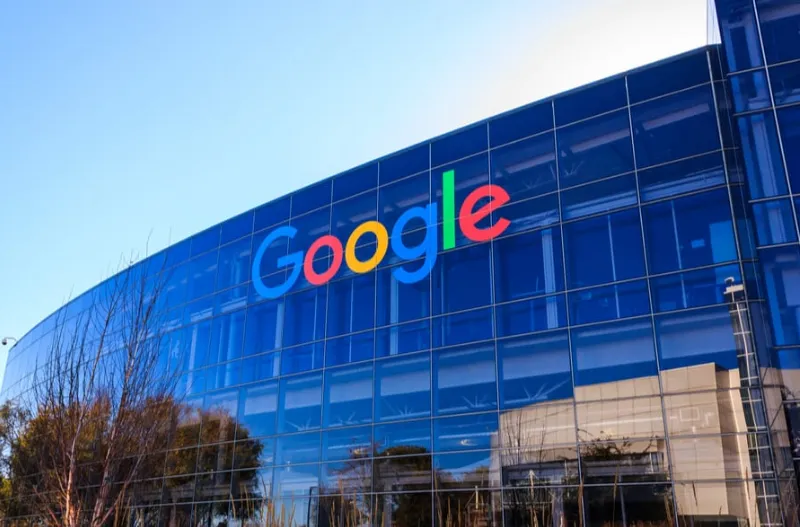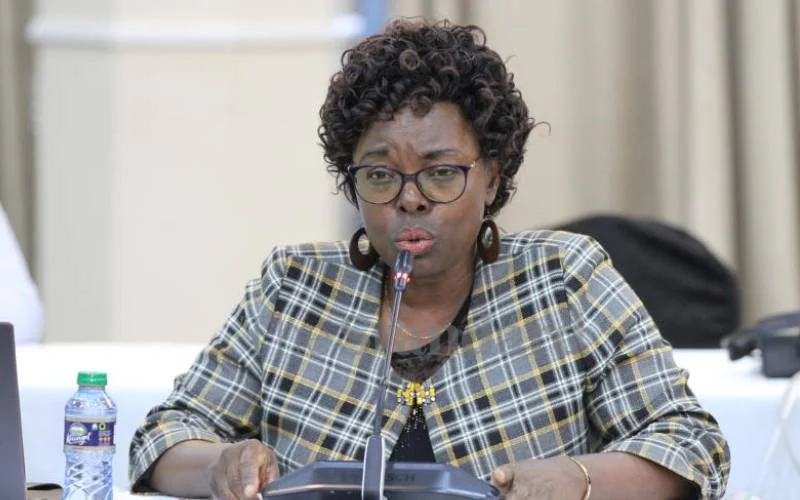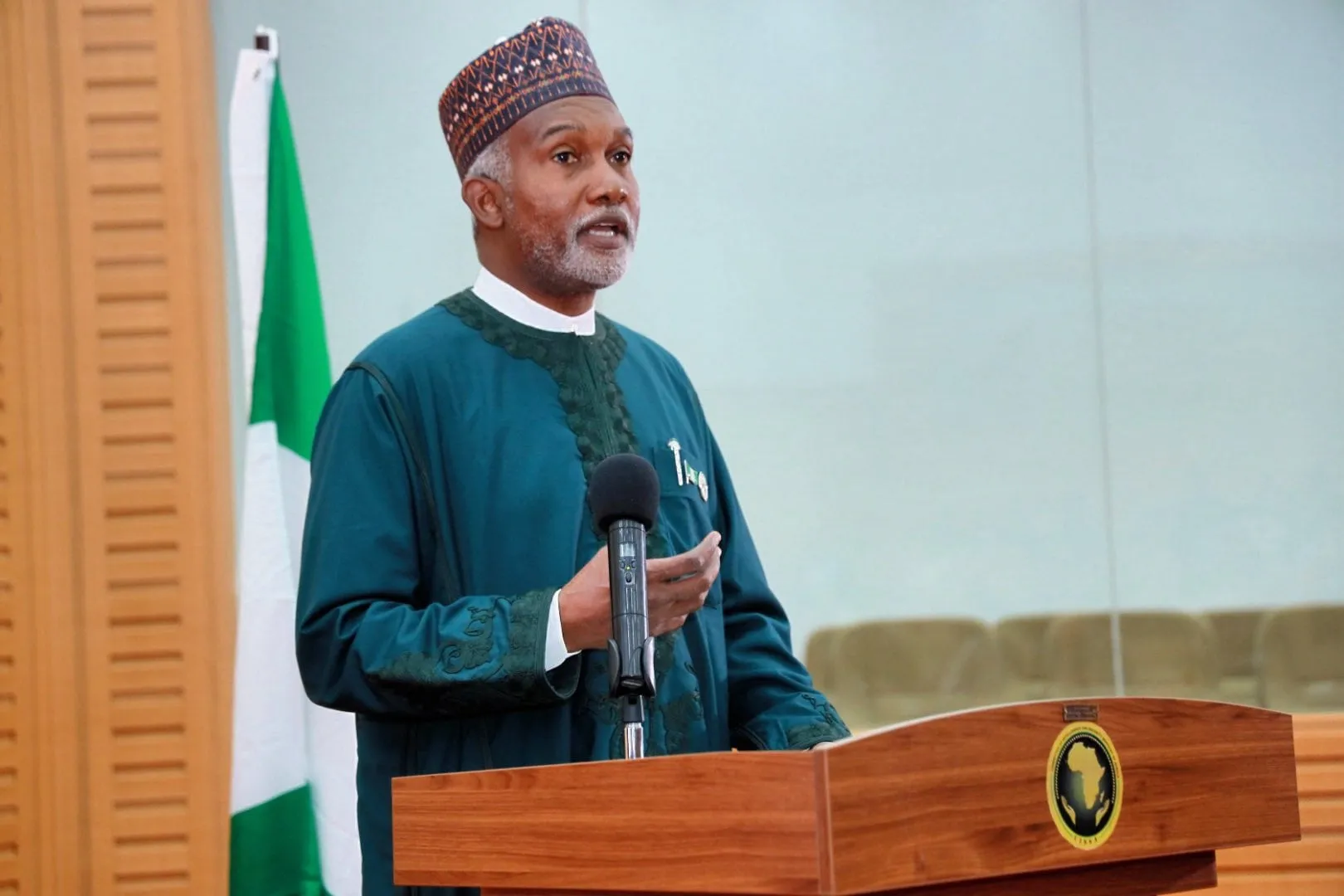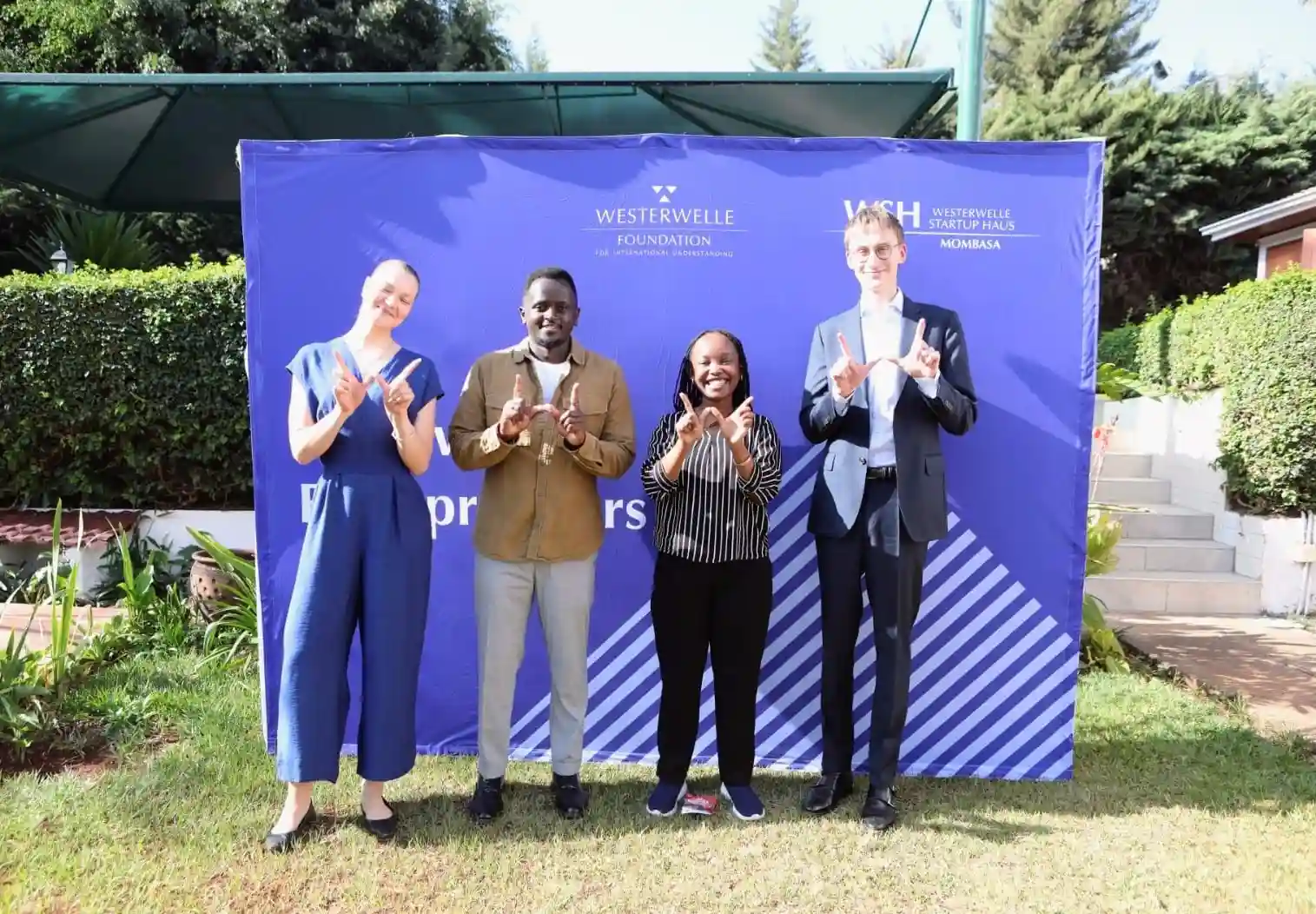The digital landscape in Africa is set for a significant transformation following a major announcement from tech giant Google. The company has pledged a cumulative $370 million (approximately R6.7 billion) in funding dedicated to accelerating artificial intelligence (AI) development across the continent. This substantial investment is complemented by the exciting launch of a new, state-of-the-art AI Community Centre in Accra, Ghana, poised to become a vibrant hub for learning, collaboration, and innovation.
This strategic financial commitment underscores Google’s deepening footprint in Africa’s burgeoning tech ecosystem. While some of the announced funding represents previously committed but unreported investments, the consolidated figure highlights a robust, long-term vision for AI-driven growth and development tailored to African contexts. The initiatives span a wide array of critical areas, including cutting-edge research, essential digital skills training, crucial infrastructure development, and catalytic support for promising AI-driven startups. These projects are strategically designed to address pressing local challenges in sectors such as food security, the development of local language technologies, and the crucial advancement of responsible AI.
A Multi-Faceted Investment: Driving Impact Across Key Sectors
Google’s $370 million commitment is not a monolithic allocation but rather a carefully structured investment designed to maximize impact across various strategic pillars. This multi-pronged approach reflects a deep understanding of the complex needs and immense potential within Africa’s diverse economies.
Tackling Hunger with AI: The Food Security Collaborative
Among the most significant initiatives is a $25 million (R450 million) investment into the AI Collaborative for Food Security. This ambitious, multi-partner effort is set to co-develop advanced AI tools aimed at revolutionizing agricultural practices and strengthening food systems across Africa. The continent, despite its vast agricultural potential, continues to grapple with food insecurity, with nearly 278 million people facing hunger in 2022. AI offers a transformative opportunity to enhance productivity and sustainability in African agriculture, acting as a “modern-day oracle” to decipher data and optimize farming techniques.
The collaborative will focus on several key areas:
- Early Hunger Forecasting: Utilizing AI to predict food shortages and famines with greater accuracy, allowing for timely interventions and resource allocation. This involves analyzing vast datasets related to weather patterns, crop yields, market prices, and conflict zones to provide actionable insights.
- Crop Resilience: Developing AI-powered solutions to enhance the resilience of crops against climate change impacts, pests, and diseases. This could involve precision agriculture, where AI-driven sensors and drones monitor soil moisture, nutrient levels, and crop health, recommending optimal irrigation and fertilization. Companies like AgriGo in Rwanda are already leveraging AI for soil moisture and nutrient monitoring, while Aerobotics in South Africa uses AI and drone technology to detect early signs of pest infestations.
- Support for Smallholder Farmers: Providing smallholder farmers, who form the backbone of African agriculture, with accessible AI tools and information. This could include AI-powered chatbots offering advice on pest control, fertilizer use, and market trends in local languages. Farmerline in Ghana, for example, already integrates AI to provide market information and weather updates to over 1.7 million farmers, boosting productivity. Similarly, Hello Tractor in Ethiopia uses AI to connect smallholder farmers with tractor owners, improving access to mechanised services.
By applying AI to these critical areas, Google aims to protect millions of smallholder farmers from worsening economic and environmental shocks, ultimately contributing to a more food-secure continent.
Empowering Local Languages: Bridging the Digital Linguistic Divide
A significant portion of the funding, $3 million (R54 million), is allocated to the Masakhane Research Foundation. This pan-African collective is at the forefront of developing AI tools for over 40 African languages. The importance of this initiative cannot be overstated. Many African languages are severely underrepresented in digital spaces, leading to a significant linguistic divide that limits access to information and services for millions.
Masakhane’s work focuses on:
- Creating Datasets: Building comprehensive linguistic datasets, a foundational step for training robust AI models.
- Translation Models: Developing advanced machine translation systems to facilitate communication and access to information across diverse linguistic groups.
- Voice Technologies: Advancing speech recognition and synthesis for African languages, enabling voice-activated interfaces and more intuitive digital interactions.
These technologies are crucial for inclusive access to digital services and ensuring that Africa’s rich linguistic diversity is preserved and empowered in the digital age. As James Manyika, Google-Alphabet’s Senior Vice President for Research Labs, Technology and Society, noted, “Africa is home to some of the most important and inspiring work in AI today. We are committed to supporting innovation that is built for and by Africans.”
Nurturing Talent: University Grants and Digital Skills Scholarships
Recognizing the critical need for a skilled AI workforce, Google is also investing directly in academic institutions and digital literacy programs. In South Africa, two prominent research institutions will each receive $1 million (R18 million) from Google.org:
- University of Pretoria’s African Institute for Data Science and Artificial Intelligence (AfriDSAI): This grant will enable AfriDSAI to expand its applied AI research and training programs. AfriDSAI is a transdisciplinary institute dedicated to reimagining how data science and AI can work for Africa, focusing on African challenges and contexts to build tools and knowledge that reflect the continent’s diversity. Their work addresses the underrepresentation of African perspectives in global AI development and aims to strengthen the continental ecosystem by bridging academia, industry, and government.
- Wits University’s Machine Intelligence and Neural Discovery (MIND) Institute: The grant will fund postgraduate students conducting foundational AI research. Wits MIND Institute focuses on fundamental AI research that promotes breakthrough scientific discoveries and aims to grow a much-needed critical mass of AI expertise on the continent. They also address the ethical and policy aspects of AI, ensuring its development is safe and inclusive.
Beyond these research grants, Google is expanding access to digital skills more broadly. This includes offering 100,000 fully-funded career certificate scholarships in AI and related tech fields like prompt engineering, data analytics, and cybersecurity across Ghana, Nigeria, Kenya, and South Africa. These scholarships are designed to equip recipients with essential AI skills, enhancing employability and spurring technological entrepreneurship in a job market increasingly shaped by AI. Additionally, $7 million in grants will support AI curricula and safety training in these key African nations.
Accra: The Epicentre of Africa’s New AI Community
The launch of the new AI Community Centre in Accra, Ghana, is a symbolic and strategic move. Accra has rapidly emerged as a vibrant tech hub in West Africa, boasting a growing talent pool, increasing internet penetration (around 69.8%), and a supportive government environment. Its time zone overlap with the US and Europe also facilitates seamless global collaboration.
The centre will serve as a physical space for:
- Learning and Collaboration: Providing a dedicated environment for developers, students, researchers, and creators to connect, share knowledge, and work on innovative projects.
- AI Literacy: Offering programs to demystify AI for the broader public, fostering understanding and responsible engagement with the technology.
- Community Tech and Social Impact: Encouraging the development of AI solutions that address local community needs and drive positive social change.
- Arts Integration: Exploring the intersection of AI and creative arts, fostering interdisciplinary innovation.
This centre is expected to become a nexus for AI talent, fostering a collaborative ecosystem that accelerates the development and deployment of AI solutions tailored to African realities.
Google’s Broader Commitment to Africa’s Digital Transformation
This latest AI commitment builds upon Google’s extensive and ongoing investment in Africa’s digital transformation. In 2021, Google pledged to invest $1 billion in Africa over five years to support various initiatives, from improved connectivity to startup investments. The company has already invested over $900 million in the region and is on track to fulfill its commitment by 2026.
Key aspects of Google’s broader strategy include:
- Infrastructure Development: A cornerstone of Google’s investment is enhancing connectivity. This includes projects like the Equiano subsea cable, a state-of-the-art fibre optic cable connecting Portugal to South Africa with branches to several West African countries. Operational since 2022, Equiano significantly increases internet bandwidth and lowers latency, boosting internet usage and contributing to GDP growth in connected nations. Such infrastructure is foundational for robust AI development, which relies heavily on high-speed data transfer and processing.
- Digital Skills Training: Beyond AI-specific scholarships, Google has consistently invested in broader digital skills training programs across the continent, recognizing that a digitally literate population is essential for leveraging technological advancements.
- Startup Ecosystem Support: Google for Startups Accelerator: Africa program has been instrumental in nurturing the continent’s vibrant tech startup scene. Since its inception in 2018, the program has supported 153 startups from 17 African countries, which have collectively raised over $300 million in funding and created more than 3,500 jobs. The current Class 9 program focuses specifically on AI innovators, providing technical mentorship, Google Cloud credits, and strategic support to help them scale. These startups are leveraging AI to address challenges in fintech, agritech, healthtech, and professional services, demonstrating the localized innovation emerging from the continent.
The African AI Landscape: Challenges and Opportunities
Africa’s journey into the AI era is characterized by both immense opportunities and significant challenges.
Opportunities: A Continent Ripe for Innovation
- Demographic Dividend: Africa’s young and rapidly growing population is inherently tech-savvy, driving demand for digital services and providing a vast pool of potential talent.
- Problem-Solving Focus: African innovators are often driven by a necessity to solve real-world problems unique to their contexts, leading to highly relevant and impactful AI applications in areas like agriculture, healthcare, and financial inclusion.
- Leapfrogging Potential: With less legacy infrastructure in some areas, Africa has the opportunity to adopt cutting-edge AI solutions directly, bypassing older systems.
- Economic Growth: AI is projected to significantly boost Africa’s economy, with some estimates suggesting a potential increase of $30 billion. By reducing costs, increasing productivity, and enabling better decision-making, AI can accelerate economic growth and foster job creation.
Challenges: Navigating the Path Forward
- Infrastructure Deficits: Despite advancements, many rural areas still lack reliable internet connectivity and consistent power supply, which are crucial for deploying and utilizing AI tools.
- Data Availability and Quality: High-quality, localized datasets are essential for training effective AI models. There’s often a scarcity of such data for African contexts and languages.
- Cost of Technology: Advanced technologies like drones and AI systems can be prohibitively expensive for smallholder farmers and small businesses.
- Digital Literacy: While mobile penetration is high, digital literacy levels vary, and efforts are needed to ensure that citizens have the skills to effectively use AI tools.
- Policy and Governance: Developing robust and ethical AI governance frameworks is crucial to ensure responsible AI development that aligns with African values and addresses potential biases. The African Union (AU) adopted its continental AI strategy in July 2024, prioritizing data sovereignty, digital infrastructure, and cross-border regulation, which is a significant step towards a coordinated approach.
A Connected Future: Africa’s Role in the Global AI Conversation
Google’s substantial investment and the establishment of the AI Community Centre in Accra are powerful signals of a growing commitment to Africa’s digital future. By fostering local talent, supporting relevant research, and backing innovative startups, these initiatives aim to ensure that Africa is not merely a consumer of AI technology but a significant contributor to its development and a shaper of its ethical framework.
The collaborative efforts between global tech giants, local universities, research foundations, and governments are paving the way for an inclusive AI ecosystem on the continent. As Africa continues to leverage AI to address its unique challenges and unlock new opportunities, its role in the global AI conversation will undoubtedly grow, demonstrating that the future of AI is truly global and deeply rooted in diverse perspectives.
Ready to take your career to the next level? Join our dynamic courses: ACCA, HESI A2, ATI TEAS 7 , HESI EXIT , NCLEX – RN and NCLEX – PN, Financial Literacy!🌟 Dive into a world of opportunities and empower yourself for success. Explore more at Serrari Ed and start your exciting journey today! ✨
photo source: Google
By: Montel Kamau
Serrari Financial Analyst
31st July, 2025
Article, Financial and News Disclaimer
The Value of a Financial Advisor
While this article offers valuable insights, it is essential to recognize that personal finance can be highly complex and unique to each individual. A financial advisor provides professional expertise and personalized guidance to help you make well-informed decisions tailored to your specific circumstances and goals.
Beyond offering knowledge, a financial advisor serves as a trusted partner to help you stay disciplined, avoid common pitfalls, and remain focused on your long-term objectives. Their perspective and experience can complement your own efforts, enhancing your financial well-being and ensuring a more confident approach to managing your finances.
Disclaimer: This article is for informational purposes only and does not constitute financial advice. Readers are encouraged to consult a licensed financial advisor to obtain guidance specific to their financial situation.
Article and News Disclaimer
The information provided on www.serrarigroup.com is for general informational purposes only. While we strive to keep the information up to date and accurate, we make no representations or warranties of any kind, express or implied, about the completeness, accuracy, reliability, suitability, or availability with respect to the website or the information, products, services, or related graphics contained on the website for any purpose. Any reliance you place on such information is therefore strictly at your own risk.
www.serrarigroup.com is not responsible for any errors or omissions, or for the results obtained from the use of this information. All information on the website is provided on an as-is basis, with no guarantee of completeness, accuracy, timeliness, or of the results obtained from the use of this information, and without warranty of any kind, express or implied, including but not limited to warranties of performance, merchantability, and fitness for a particular purpose.
In no event will www.serrarigroup.com be liable to you or anyone else for any decision made or action taken in reliance on the information provided on the website or for any consequential, special, or similar damages, even if advised of the possibility of such damages.
The articles, news, and information presented on www.serrarigroup.com reflect the opinions of the respective authors and contributors and do not necessarily represent the views of the website or its management. Any views or opinions expressed are solely those of the individual authors and do not represent the website's views or opinions as a whole.
The content on www.serrarigroup.com may include links to external websites, which are provided for convenience and informational purposes only. We have no control over the nature, content, and availability of those sites. The inclusion of any links does not necessarily imply a recommendation or endorsement of the views expressed within them.
Every effort is made to keep the website up and running smoothly. However, www.serrarigroup.com takes no responsibility for, and will not be liable for, the website being temporarily unavailable due to technical issues beyond our control.
Please note that laws, regulations, and information can change rapidly, and we advise you to conduct further research and seek professional advice when necessary.
By using www.serrarigroup.com, you agree to this disclaimer and its terms. If you do not agree with this disclaimer, please do not use the website.
www.serrarigroup.com, reserves the right to update, modify, or remove any part of this disclaimer without prior notice. It is your responsibility to review this disclaimer periodically for changes.
Serrari Group 2025
















